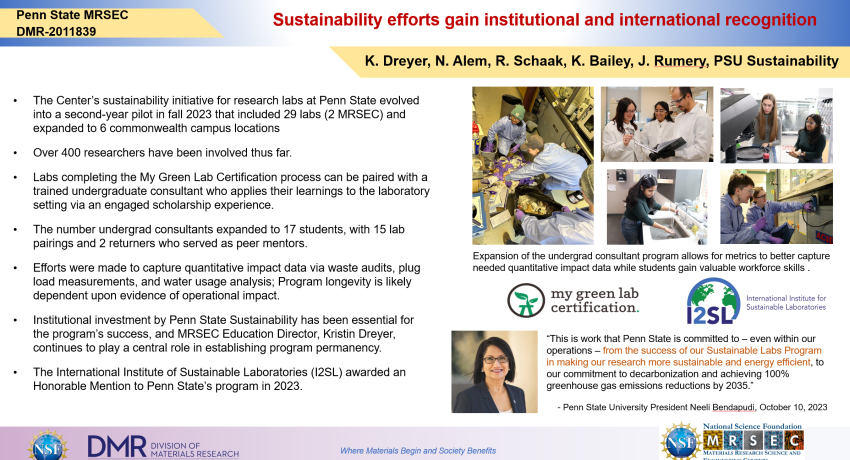What Has Been Achieved: Following the success of the first-year’s proof of concept pilot effort, the second-year pilot in 2023-2024 included a much larger cohort of undergrad consultants and demonstrated that this pairing aspect of the program has strong appeal and benefits to both undergraduates and participating labs. Compared to the first year where only four students served as consultants (a fifth student resigned due to other commitment priorities), 15 out of 29 labs received assistance and two served a 2nd year in a new peer mentoring role. Three of the original four undergrads who completed the first-year pilot applied to return (one graduated). Of these three students, one paired with a new lab to repeat the experience and the other two became program assistants to pilot a nascent leadership model. Having experienced student leaders to help support the much larger cohort of 15 paid, trained consultants prompted an initiative to have these students collect quantitative impact data. Obtaining and meaningfully compiling data, however, is non-trivial. Efforts to take pre/post measurements revealed the need for much better tools and methods of collection so that comparisons and extrapolations can be made with confidence. Nonetheless, the data collection effort strengthened relationships between consultants and their labs while building technical and interpersonal skills. As a result, a critical third-year pilot effort is planned to take place in 2024-2025 with the goal of gathering reliable measurements.
Importance of the Achievement: The second-year pilot provided a more realistic idea of this program’s potential to impact operations, laboratory culture, and student skill development. Growth in the number of paid SLAs paired with a variety of labs allowed the program’s leadership team the opportunity to assess the essential elements for a successful SLA and laboratory experience, and the necessary support structures that need to be put in place. Not all labs are appropriate for hosting an SLA and providing that student with a rich experience that applies the knowledge being gained in their training efforts, yet all labs benefit from programmatic support to help them stay on track, tap into Penn State information and resources, and make gainful improvements to their lab operations. Returning SLAs may be well-suited to assist program staff in providing such support. Lessons learned are helping to formulate a long-term strategic plan for staffing needs, programmatic activities and timelines, partnerships with mutually beneficial goals, and permanent funding.
How is the achievement related to the IRG, and how does it help it achieve its goals? This effort aligns directly with the Center’s focus on sustainability as its proposed education, outreach, and human resource development theme. Where the findings are published: Efforts are not yet published, but multiple news articles have been written about the program and the International Institute for Sustainable Laboratories (I2SL) recognized the program with an Honorable Mention award and an invited talk at their fall 2023 conference.


